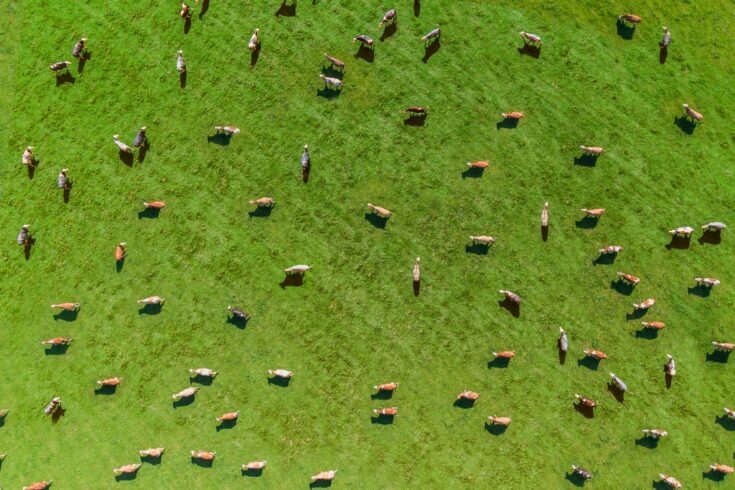The Biotechnology and Biological Sciences Research Council (BBSRC) and Department for Environment, Food and Rural Affairs (Defra) have funded new research into infectious animal disease.
ERA-NET co-fund
The research is funded by the ERA-NET co-fund which is part of Horizon 2020.
The co-fund provides a platform for the International Coordination of Research on infectious Animal Diseases (ICRAD) to promote collaborative research and innovative technology development. It underpins key global farming and environmental strategies and has partners from 20 countries.
BBSRC and Defra have contributed approximately £2 million and £0.7 million respectively to the total co-fund investment of €20.2 million.
Nineteen projects
Nineteen projects have been funded to:
- increase understanding of animal disease pathogens including key and priority diseases such as African swine fever and avian influenza
- develop novel vaccine technologies and delivery systems.
UK research will be funded on nine of the projects.
This essential research will:
- ratify and promote high animal welfare
- strengthen sustainable production systems
- reduce reliance upon anti-microbial treatments
- decrease antimicrobial resistance to treatments in livestock populations, extending the efficacy of existing treatment options.
Dangerous infectious diseases
UK Chief Veterinary Officer Professor Christine Middlemiss said:
This important research underpins our efforts to control some of the most dangerous infectious diseases threatening our livestock, wildlife and the safety of the public, including avian influenza and African swine fever.
Through this grant, the UK is investing in new vaccine technologies and delivery systems as part of our efforts to reduce global reliance on antimicrobial treatment, as an important stand of the UK’s five-year action plan for antimicrobial resistance.
Defra Chief Scientific Advisor Professor Gideon Henderson said:
This kind of coordinated, international scientific effort is absolutely essential to meeting our greatest animal health challenges head on.
These grants represent another important step along the road to tackling some of those challenges, and the UK remains committed to working with our international partners to overcome infectious animal disease.
Professor Melanie Welham, Executive Chair of BBSRC said:
Livestock diseases threaten not only animal health but the integrity of food supply chains, with far-reaching consequences for public health and serious economic impacts upon agriculture and food producers.
Through pan-European cooperation, researchers are coming together under this programme to meet these very real challenges. The funding announced today may prove vital in addressing this pressing issue.
Further information
Funded projects
| Project title | Coordinating partner country | UK principal investigator |
|---|---|---|
| Virulent non-notifiable avian influenza; determinants of virulence of emerging viruses (FluNuance) | The Netherlands (Royal GD) | Lonneke Vervelde, University of Edinburgh (Roslin) |
| Understanding the dynamics and evolution of swine influenza viruses in Europe: relevance for improved intervention and sustainable pig production (PIGIE) | France | Ian BROWN, APHA |
| Tackling chronic wasting disease in Europe (TCWDE) | UK | Fiona Houston University of Edinburgh (Roslin) |
| Decoding a virus Achilles heel: the African swine fever virus interactome (ASFVInt) | France | Christopher Netherton, The Pirbright Institute |
| Nucleic nanovaccines for fish (NucNanoFish) | France | Samuel Martin University of Aberdeen |
| Future rodent management for pig and poultry health (RODENTGATE) | Belgium | Steven Belmain, University of Greenwich |
| Novel strategies to enhance vaccine immunity in neonatal livestock (NEOVACC) | UK | Simon Graham, The Pirbright Institute |
| Plant-based production of glyco-engineered nematode vaccines (Plants4Nemavax) | Belgium | Alasdair Nisbet, Moredun |
| Assessing swine as potential hosts for emerging coronaviruses (ConVErgence) | Italy | Pierre Nouvellet, University of Sussex |

